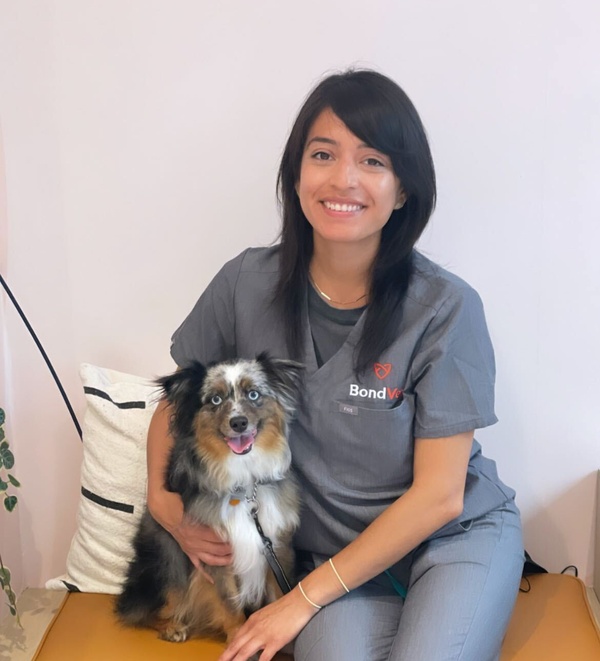
What's a Vet Tech?
It’s Vet Tech Appreciation Week, and to mark the occasion, Feliza Lopez, LVT — our Medical Education Associate — explains a vet tech’s certifications, role and specialties.
When we speak to the public about veterinary technicians we have to think about the state of our profession. I firmly believe knowing the past helps you succeed in the present. In 1981, the North American Veterinary Technician Association was formed to represent all veterinary technicians. The name has since changed to the National Association of Veterinary Technicians in America (NAVTA), an organization that works closely with the American Veterinary Medical Association (AVMA) to protect, support, and promote the profession of veterinary technology. This organization is also responsible for the development and accreditation of veterinary technician specialties (VTS). In 1989, the AVMA officially adopted the term “Veterinary Technician'' and in 1992, NAVTA declared the third week of October to be National Veterinary Technician Week. Then in 1993, NAVTA established Veterinary Technician Specialties (VTS), of which NAVTA currently recognizes sixteen specialty academies, including dental care, anesthesia and emergency and critical care.
So what does a Veterinary Technician or VTS do?
We are nurses for all creatures great and small. We are a community of educators, caregivers, and healers. In the hospital setting, veterinarians rely on us heavily to perform high-level anesthesia, dentistry, diagnostic imaging, phlebotomy, and patient care on many species ranging from birds, iguanas, ferrets, tigers, and of course cats and dogs. One technician will know how to place central line IV catheters, run multiple bloodwork analysis machines, assist in surgical procedures, do client communication, manage hospital equipment, drug calculations, console a client who lost their pet and of course make time to cuddle their patients so they don't feel nervous. Technicians also perform medical tests in laboratory environments for use in the treatment and diagnosis of diseases in animals and people. Laboratory technicians oversee husbandry and medical care for these animals.
Essentially, technicians are not legally permitted to prescribe medication, diagnose conditions, and perform surgeries, but in the veterinary clinic, we are responsible for many other tasks. Technicians go through several years of schooling, pass boards, and go through extensive cross-training in the workplace to succeed in their role.
More recently, the industry (shout out to Bond Vet) has recognized the value in the skills and knowledge a technician contributes to the clinic environment, and now many of us have found new, engaging career pathways in more operational roles.
Individuals with VTS certifications often engage in sharing of knowledge through lecturing and training, authoring articles and textbooks, creating guidelines and mentorship models, and participating in organized veterinary medicine. The VTS requirements include 3-5 years of experience in a specialty field, a rigorous application process, and a challenging board exam- after becoming a credentialed technician. The motivation to pursue certification largely lies in commitment to the specialty field and dedication to patient care in raising standards of practice.
So, back to National Veterinary Technician Week. During this week, we honor technicians' commitment to compassionate and high-quality veterinary care for all animals. With the support of the veterinary community and the public, veterinary technicians can continue to feel empowered to reach their fullest potentials as caregivers and valued professionals. Most importantly, we play an integral role in keeping families healthy so their bond can grow — and that is really what this profession is all about.
If you want to learn more
About the author:
Feliza Lopez is a Licensed Veterinary Technician with over twelve years of experience in level one trauma specialty hospitals, international veterinary outreach and sterilization programs for underserved Latin American communities, and general medicine. As Bond Vet's Medical Education Associate on the Medical Operations team, Feliza designs and implements the MADE program, an apprenticeship program for newly graduated veterinarians. Her passions include mentorship and leadership, and she is dedicated to helping develop career pathways in veterinary nursing and in raising nursing standards and competencies. Feliza is also the recipient of The Animal Medical Centers 2017 “Technician of the Year” award and is a VTS-ECC 2022 candidate.